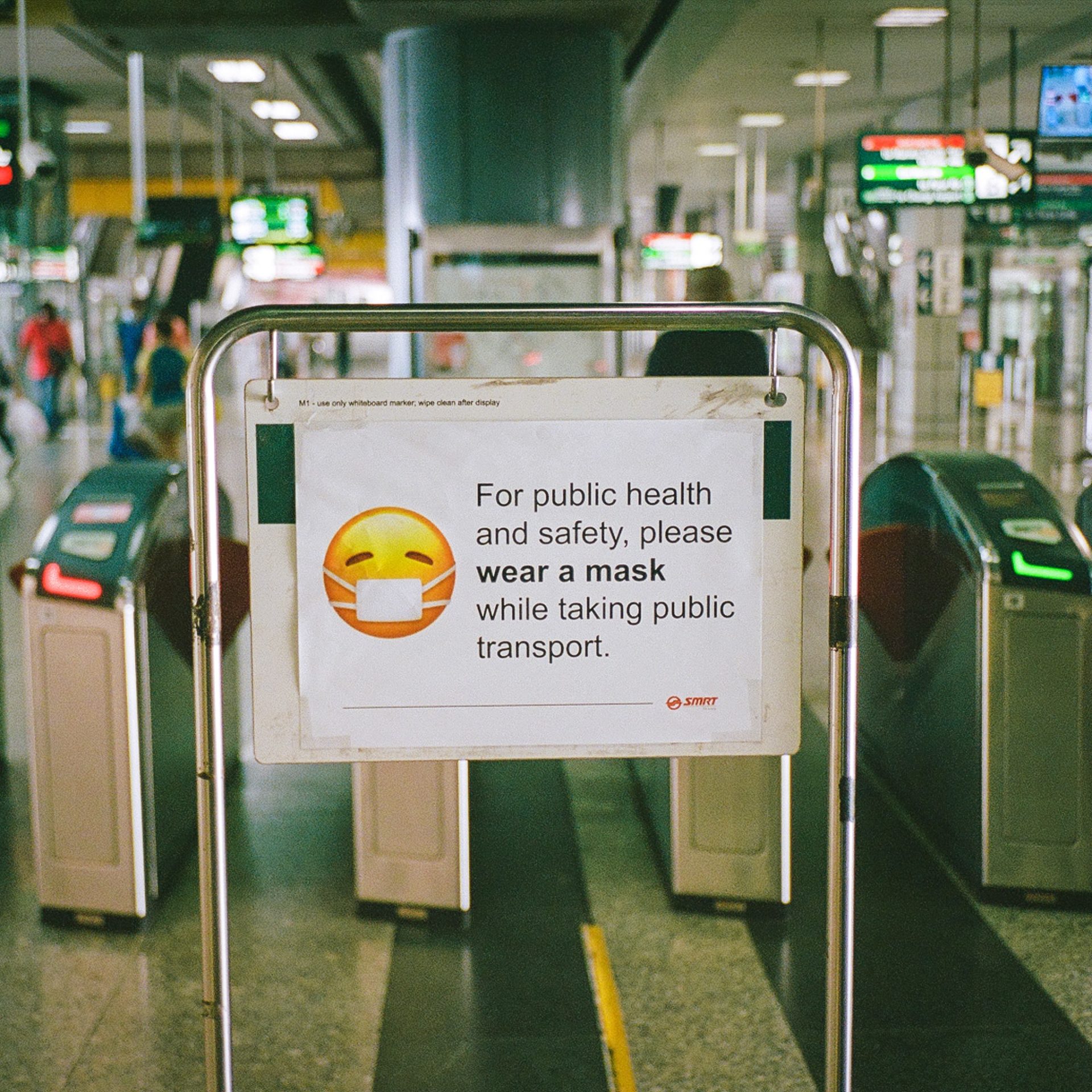
As lockdown is eased and we start to get out and about again for both work and play, we are inevitably faced with decisions about the way we travel.
When it comes to pushing the public transport agenda, the question really is when it should be done rather than if...
The government want us to walk or cycle, but that has been the case for decades and sometimes it’s simply not practical. So, for most it’s a choice between public transport and private transport. During lockdown, the car was the obvious answer – driving was a much safer alternative and, with considerably less traffic on the roads, journeys were faster and more economical than ever before. Crucially, it seemed that we all had permission to put aside our ‘eco guilt’ – at least for a while.
As we entered July, the message from the government was a little less clear cut; however, the overall advice seemed to be that we should continue to avoid public transport unless absolutely necessary. After months of actively discouraging travel on their buses, trains and ferries, operators must be careful about their next steps; it’s not time yet to declare the emergency over. But, at the same time, the narrative needs to change eventually and this has led to calls (notably from FirstGroup) for the government to stop actively discouraging travel on trains and buses. Naturally, there is some self-interest from the operators here, but public transport clearly does have benefits to society, and in particularly to the environment.
When it comes to pushing the public transport agenda, the question really is when it should be done rather than if. But, even if the message is changed, will anyone actually listen? As we prepare to restart, will we see old travel habits return? The answer for many, in the short term at least, is no. Unless operators get this right, those with a choice may continue to get in their car or on their motorbike. How can public transport operators start to ease their financial woes whilst, at the same time, helping the country’s green agenda back on track?
Understanding passengers is crucial, although it’s not easy…
If operators are going to encourage people back on to public transport in the future, there are several issues they need to address. Of course, travel must be as safe as it possibly can be. But more than that, customers must perceive it to be safe. It’s about winning hearts and minds. Crucial to this is in-depth understanding of attitudes towards travel – what are the needs, expectations and wants as they stand now? How are these likely to evolve as the world opens up again? Once understood, services must be tailored accordingly along with clear and concise marketing and communications.
This sounds simple but it’s actually a daunting task. Attitudes are going to vary hugely depending on travel mode, journey length, journey purpose, who you are travelling with and so on. Each operator has a unique set of circumstances and their own distinct customer base. A number of polls over recent months have made sweeping statements about a likely reduction in passenger numbers. Clearly these are designed to grab headlines; however, none are particularly useful for decision making and they often generate more questions than answers. Crucially, much of the accompanying narrative seems to ignore that operators are not helpless – with the right information, they can take positive actions and begin to fight back.
One major dilemma: enforcement vs. Personal responsibility
Despite the different circumstance each operator finds themselves in, it is clear that that some factors are universal. Our COVID-19 trackers have covered almost every sector in the UK and words like ‘safety’ and ‘re-assurance’ crop up time and time again. Of course, the travel industry is no exception and two factors dominate the conversation in this regard; face coverings and the ability to social distance (whether that be 1m or 2m).
Travel operators have a real dilemma, namely how much should be down to passengers to ‘do the right thing’ and how much should be enforced upon them. One of our polls conducted in May for the Train Operating Companies, showed that the majority were happy for passengers to self-police; however, 1 in 4 wanted policies to be enforced, either by the operators themselves and/or by the authorities. Whatever the way forward, the need for clarity is fundamental – the rules must be concise and communicated in a way that leaves no doubt. And, despite the different scenarios in which businesses operate, a consistent approach is needed wherever possible.
In part, the Government took away some of the dilemma in England when it made the wearing of face coverings mandatory on public transport from 15th June. But there is a lot more to consider. Again, it would make sense for operators to make decisions armed with the most accurate and up-to-date information from their passenger base. People don’t always know what is best for them, but their views should at least be a major part of the mix.
Should operators promote public transport without government backing?
This would simply risk more confusion and, with many operators relying on government help to stay afloat, this would not appear to be the way forward. FirstGroup publicly calling out Grant Shapps to change the message is a clear sign that they know the government must lead on this. For the foreseeable future, some form of social distancing will still need to be maintained. As things stand, it would be irresponsible for operators to claim they have the necessary space on board for a return to normal. Services will continue to operate at a greatly reduced capacity; however, reduced capacity does not mean no capacity. Therefore, the operators are keen to take the first step and gradually encourage us back on to public transport to safely take advantage of what space there is.
Of course, it’s a tricky balancing act; pictures of crowed trains and tubes have been widely circulated on social media, but these are the exception rather than the rule. Once the government make it clear that travel on public transport is permissible and no longer only if ‘unavoidable’, the operators can get on with the business of convincing us it’s safe and the responsible thing to do.
The longer term
In the longer term (and it’s impossible to put a timeframe on this), rules around social distancing will be relaxed even further and operators need to be ready. It’s not clear that we will ever return to the days of vastly over-crowded buses, trains or the underground during rush hour. And, to be honest, is that what anybody wants? Even the companies selling the tickets would probably prefer a more consistent flow.
The ‘new normal’ is one of the most commonly used phrases of 2020 but it’s something we all understand. The key is that this isn’t necessarily something that will just happen – the new normal can still be influenced.
Where possible, operators should be advised to take advantage of the situation to push things in the direction they want. So, if no-one wants passengers crowding onto trains and buses at the same time each day, what initiatives can be put in place to encourage travel at different periods? If, as seems apparent, there is a desire for touch-free travel, is now the right time to push digital ticketing systems – online purchasing, etickets and smart cards? The benefits to the travel industry of these types of systems are well publicised.
Of course, not all aspects of the new normal will be desirable or avoidable. In some cases, the pandemic has merely accelerated trends that providers of public transport would not have wished for. For instance, the 5-day a week commute was already on the decline. The inevitable increase in working from home will mean that workers will purchase even fewer season tickets/bus passes – the lifeblood of many operators. But, again, this does not mean that there is nothing to be done. Speak to passengers, understand what they want in terms of flexible ticketing and put in place options that will work for them in the future.
In conclusion: Don’t wait for it to happen – there is a lot to do
Once the government change their message on public transport, the onus will firmly be back on the providers. As the potential passengers, we need to be convinced that whatever mode we choose, it’s a safe and responsible option. Firstly, operators must ensure that they implement the measures their customers want – whether that be social distancing, e-ticketing, cleaning regimes and so on. Secondly the rules need to be clearly communicated for each individual service. Re-assurance is needed and so policies for enforcement are a big part of this.
Clearly there is a lot to do in the short term; however, travel businesses also need to be thinking longer term if they are to thrive in the new normal. Indeed, it’s the businesses that can influence the ‘direction of travel’ through positive action, which will be in the best position.
Whether you are making decisions regarding next week or years down the line, one thing is abundantly clear; the views of the passengers are paramount. All businesses need to listen to their customers, particularly now with unprecedented levels of change. We need to understand what travellers want today and what they may want in the future. We need to establish which behaviours are changing, why they are changing and, crucially, what we can do to influence them.
Speak to Savanta
We take a consultative approach to market research with commercial focus driving everything we do. We have many years of experiences working in the travel and transport sector. As such, we have the necessary expertise in your industry and believe we are the perfect partner in these uncertain times.
To find out more please get in touch with one of the team at [email protected]




